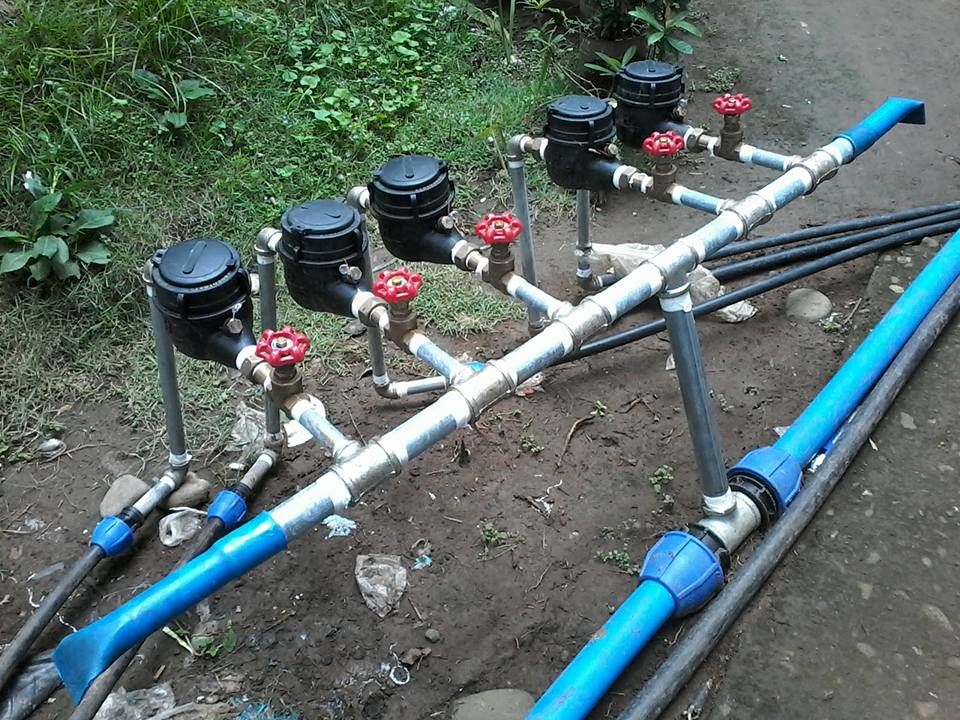Hope for IDPs in Mindanao amid ongoing Marawi conflict
Amid the ongoing conflict in Marawi City, UNHCR has been working to provide displaced families and communities elsewhere in Mindanao another chance to get back on their feet and start lives anew.
In the present conflict dynamics in Mindanao, the groups responsible for violence have multiplied. Today’s conflicts often involve a myriad of different factions. Some include organizations which seek to take control of territory, or individuals associated with violent international ideological movements that seek to exploit local grievances. These have far-reaching impacts on civilians, and particularly on the vulnerable: women, children, the elderly, indigenous groups, and persons with special needs.
“Conditions in this present crisis today present major challenges, especially if causes of displacement and protection gaps go unaddressed. This daunting task only means we need to do much more and fast together with our partners,” says Yasser Saad, UNHCR Philippines’ Head of National Office.
This year, UNHCR continues to bolster its commitment to empower displaced families and communities in Mindanao, particularly in the island provinces of Sulu and Basilan, Lanao del Norte, and Lanao del Sur. In July and August, UNHCR completed four quick impact projects (QIPs)—low-cost, high-impact projects aimed at providing displaced communities the opportunity of getting back on their feet.

This year, UNHCR continues to bolster its commitment to empower displaced families and communities in Mindanao. Photo: © UNHCR/R. Kulat
Securing communities after displacement
While the ongoing firefights in Marawi City continue as government forces attempt to neutralize ISIS-inspired militants in the city, UNHCR has been working in other areas in to build better futures for people forced to flee their homes in remote areas widely inaccessible to other actors.
“We remain present in different areas of Mindanao to help stabilize areas ridden with displacement while also monitoring the mounting protection concerns in the aftermath of the ongoing conflict in Marawi City which has led to the displacement of over 360,000,” says Saad. “Recognizing the right of IDPs to successfully integrate back into their communities, we aid in the process by offering solutions to complement existing community projects and provide livelihood support for IDPs to help them rebuild their lives.”

In July and August, UNHCR together with its local NGO partner Community and Family Services International turned over several QIPs to benefit local communities who have been forcibly displaced from their homes as a result of recurring armed conflict. Several far-flung barangays (villages) usually inaccessible due to security concerns have been targeted to serve as recipients of the QIPs. Photo: © UNHCR/R. Kulat
In the municipality of Maluso in the island province of Basilan, where military operations to drive out militant groups often result to displacement for the locals, UNHCR identified protection concerns and implemented projects in support of ongoing initiatives by the local government units.
Since unstable electricity sources and lack of lighting facilities were reported by locals in the area, UNHCR installed 7 units of solar street lights in Brgy. Townsite to support the initiative of the local government units to prevent gender-based violence that frequently occurs in dark areas due to absence of light sources.
In nearby Brgy. Taberlongan, where the main sources of living for many are coconut and rubber farming and fishing, UNHCR provided livelihood support by handing over 2 sets of fishing nets to the local community. When municipal and barangay level government units expressed the need to build resiliency due to their village being racked by decades of armed conflict, UNHCR also supported the initiative by turning over 6 units of sewing machines and dressmaking materials to the community.

The local government units aim to revive the Yakan culture and plan, in the long term, to transform their community into a Yakan village. The sewing machines and dressmaking materials will help the locals start this transformation by producing the Yakan traditional dress. Photo: © UNHCR/R. Kulat
The project supports the existing skill set of the men and women from the community, who have communicated their struggle in preserving the “Yakan culture” in the area. The municipal and barangay level government units provided for the construction of a concrete women center where the sewing machines and their products will be installed and displayed.
Low-cost, high-impact projects
“We have established relationships with affected communities across Mindanao through community empowerment projects that aim to stabilize communities and assist them in finding solutions if they are displaced,” says Saad.
Community empowerment projects are implemented with a wide variety of possible objectives to be determined by the stakeholders. They can include livelihood and small infrastructure projects aimed at improving resilience to displacement. The operative criteria is the consensus on need and the connection to conflict and displacement resilience of the community.

Empowerment of communities is the driving principle, guaranteed through participatory processes from design to evaluation of the QIPs. These projects help to strengthen and stabilize returning communities by encouraging members of the community to work together in improving and, in most instances, rebuilding their lives. Photo: © UNHCR/R. Kulat
Aside from the QIPs implemented in Basilan, UNHCR also facilitated the delivery and turnover of other projects in Sulu, Lanao del Norte, and Lanao del Sur, areas in the southern Philippines where armed conflict displacement has become the harrowing reality for many locals.
These QIPs are designed to support community development in areas where locals are continually subjected to displacement and lose their homes, other civilian properties, and public structures to armed conflict. The QIPs are aimed at aiding in the process of achieving long-term development.
“UNHCR believes that empowering displaced communities is essential. QIPs are important to enable IDPs to return to their homes and reestablish some sense of normalcy in their lives. It is our way of helping them move forward and reintegrate back into their communities with the ultimate goal of providing durable solutions to people left most vulnerable by displacement,” Saad concludes.




